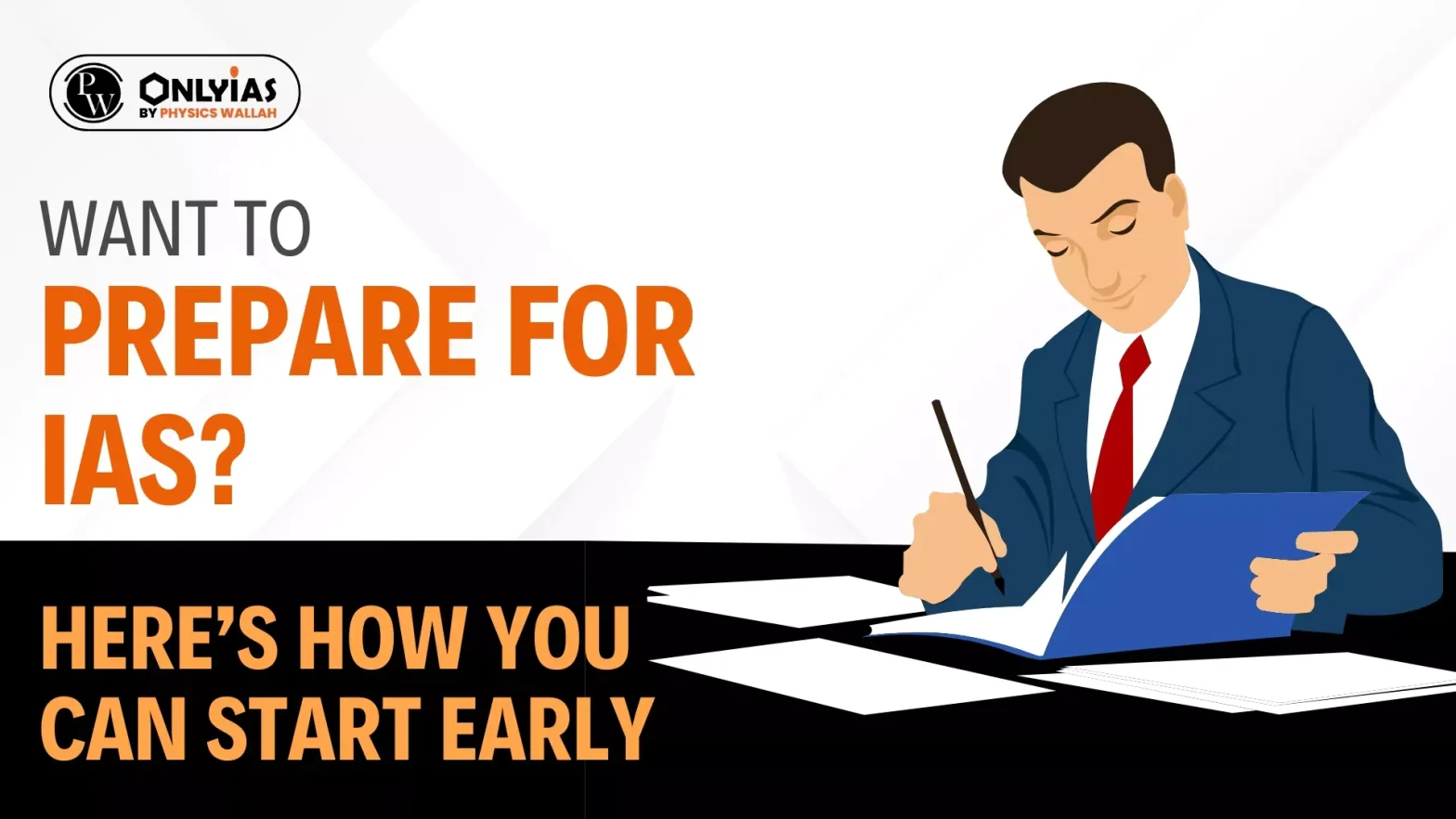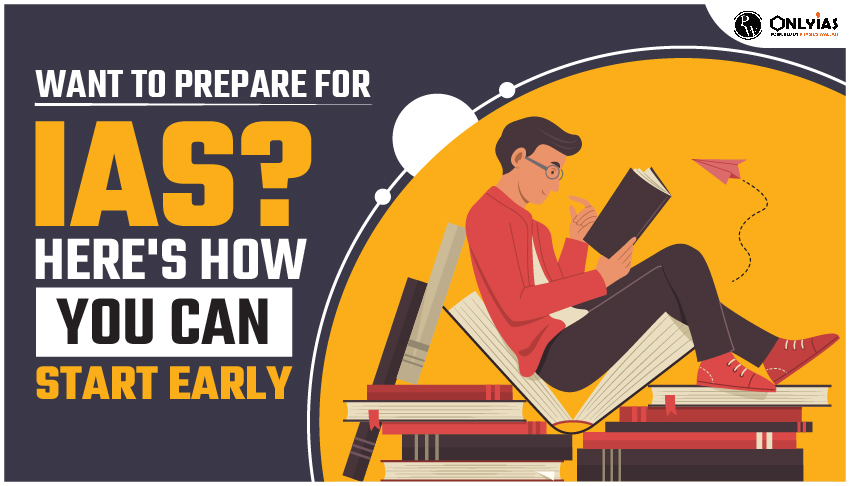

Are you someone who aspires to join the prestigious Indian Administrative Services (IAS)? Do you dream of making a difference in society through your leadership and administrative skills? If yes, then it’s never too early to start preparing for the exam. By beginning early, you give yourself ample time to study and master the concepts required for the IAS exam. Here, we will discuss some effective strategies and tips on how you can kick-start your IAS preparation journey.
Moreover, as one of India’s most coveted and prestigious positions, the Indian Administrative Services exam attracts thousands of aspirants every year. However, the IAS exam is not just any ordinary test – it demands a high level of dedication, hard work, and perseverance from the candidates.
Therefore, it is imperative to start your IAS preparation as early as possible, giving yourself enough time to get a hold of the vast syllabus and the exam pattern.
In this article, we will discuss some essential tips and strategies that can help you start your IAS preparation early and set you on the path to success. So, if you want to take the IAS exam and embark on a challenging yet rewarding career, this article is for you.
Here, we will list down some strategies to follow for UPSC IAS Exam Preparation.
The IAS exam is known for its rigorous and challenging nature, which makes it crucial for aspirants to understand the exam pattern thoroughly. Let’s delve into the exam pattern and understand the different stages of the exam and their weightage.
To begin with, the IAS exam consists of three stages – the Preliminary exam, the Mains exam, and the Personality Test or Interview. The Preliminary exam is a qualifying test that comprises two objective-type papers – General Studies (Paper I) and Civil Service Aptitude Test (CSAT) (Paper II).
Moreover, the General Studies paper covers a wide range of topics, including history, geography, polity, economics, and current affairs, while the CSAT paper tests the candidates’ comprehension, reasoning, and analytical abilities.
Furthermore, once the candidate clears the Preliminary exam, they become eligible to appear for the Mains exam. The Mains exam consists of nine papers, of which two papers are qualifying in nature, and seven papers are evaluated for the final selection.
Finally, the candidates who clear the Mains exam are called for the Interview, which is conducted by a panel of experts to assess the candidates’ personality traits, leadership qualities, and communication skills.
Knowing the IAS exam syllabus is the second step towards building a solid foundation for your preparation. Let’s take a closer look at the syllabus and the essential topics that you should focus on.
The IAS exam syllabus covers a wide range of subjects. It include history, geography, polity, economics, environment, and ecology, to name a few. Understanding the weightage of each subject and topic is essential to prioritise your preparation effectively.
Moreover, the General Studies paper carries the maximum weightage in the IAS exam. So it is crucial to focus on this subject. The paper consists of four sections – History and Culture, Geography, Indian Polity and Governance, Economic and Social Development, and Environment and Ecology.
Furthermore, apart from General Studies, candidates must also choose an optional subject for the Mains exam, which carries a significant weightage. Candidates can choose any subject of their choice, ranging from literature, science, technology, and engineering to philosophy, anthropology, and sociology. You can also check for Best Books for IAS Preparation.
Creating a study plan is a crucial step towards achieving success in the IAS exam. With a well-designed study plan, candidates can effectively manage their time, cover the syllabus efficiently, and stay focused and motivated throughout their preparation.
The first step towards creating a study plan is to assess your strengths and weaknesses and allocate more time to the subjects that require more attention. Candidates should prioritise their preparation based on the subjects’ weightage and the topics’ importance.
Moreover, it is also essential to set realistic goals and timelines while creating a study plan. Candidates should break down the syllabus into smaller segments and create a schedule that covers all the important topics. They should also allocate sufficient time for revision and practice to improve their writing and analytical abilities.
Furthermore, apart from studying the subjects, candidates should also focus on developing their personality traits, and communication skills, which are crucial for the Interview. Candidates should spend time reading IAS Preparation books, newspapers, and magazines, which can help them stay updated with the latest events and developments.
Analysing previous year’s question papers (PYQs) is an essential component of IAS preparation. It can provide valuable insights into the exam pattern, question format, and the questions’ difficulty level. By analysing PYQs, candidates can also identify important topics and subjects and plan their preparation accordingly.
Moreover, to analyse PYQs effectively, candidates should focus on understanding the exam pattern and the types of questions asked. They should also identify the important topics and subjects and allocate more time to studying them. By solving PYQs regularly, candidates can improve their speed and accuracy and get familiar with the exam format.
Additionally, candidates should also evaluate their performance after solving PYQs and identify the areas that require more attention. They should also take mock tests and evaluate their performance regularly to assess their preparation level.
NCERT books are considered the foundation of the Indian education system. These IAS Preparation books are an excellent resource for IAS aspirants as they cover the basic concepts and principles of various subjects in a simple and easy-to-understand manner.
Starting your IAS preparation with NCERT books can help you build a strong foundation in the subjects and understand the fundamental concepts thoroughly. NCERT books for various subjects, include History, Geography, Political Science, Economics, and Science, provide a comprehensive understanding.
Furthermore, it is also essential to read the NCERT books thoroughly and revise the important topics regularly. Candidates should make notes of the important concepts from NCERT Books and use them for quick revision.
Overall, starting your IAS preparation with NCERT books can help you build a strong foundation in the subject. By studying IAS Preparation books and solving practice questions, candidates can develop their analytical and critical thinking abilities and increase their chances of success in the IAS exam. You can also check for Best Books for IAS Preparation.
The IAS Mains exam has an optional paper that accounts for 300 marks. Choosing the right optional subject can significantly impact your score and overall ranking. Therefore, choosing an optional subject that aligns with your interests, skills, and background is essential.
There are several factors to consider while choosing an optional subject, such as your academic background, interest in the subject, the availability of study material and coaching, and the scoring trend of the subject. It is also essential to consider the difficulty level and the time required to cover the syllabus.
Moreover, candidates should also consider the future prospects of the subject and how it aligns with their career goals. They should analyse the recent trends and changes in the subject and understand its relevance in the current socio-economic scenario.
Additionally, before finalising the optional subject, candidates should research thoroughly and consult with experts and mentors to better understand the subject’s requirements and scoring potential.
Making notes is an essential part of IAS preparation. It helps candidates revise the concepts quickly and effectively and reinforces their understanding of the topics. Notes serve as a reference guide and enable candidates to revise the topics quickly, saving time and effort.
When making notes, candidates should focus on capturing the essential points and concepts and avoid copying the entire text. They should use short phrases, abbreviations, and diagrams to make the notes concise and easy to understand. Candidates can also use different colours and highlighters to categorise the topics and make the notes visually appealing.
Moreover, while making notes, candidates should focus on the important topics and concepts that are likely to appear in the exam. They should also revise the notes regularly and update them with the latest information and developments. This helps them retain the information for a more extended period and enhances their recall ability.
Additionally, notes also come in handy during the revision phase, as candidates can quickly go through the key points and concepts before the exam. This can help them identify their strengths and weaknesses and focus on the areas that require more attention. You can also check for IAS Preparation Books.
Preparing for the IAS exam requires dedication, perseverance, and a well-planned strategy. By starting early and following the tips discussed in this article, candidates can set themselves on the path to success.
Moreover, it is crucial to remember that IAS preparation is a continuous process that requires consistent effort and commitment. Candidates should stay updated with the latest developments and current affairs and revise regularly to enhance their recall ability.
With the right approach and mindset, candidates can crack the IAS exam and pursue their dream of serving the nation. We hope this article has provided valuable insights and guidance on preparing for the IAS exam. So, start early, stay focused, and keep working towards your goal. The journey may be long, but the rewards are worth it.
| If you are looking for More content related to UPSC IAS, Kindly visit the below table: | |
| Everything you need to know about IAS | Can I prepare for IAS Exam while Working? |
| How Offline Coaching Helps in IAS preparation? | Which is Better for IAS Coaching – Offline or Online? |
Q1: Is choosing an optional subject for the IAS exam necessary?
Ans: Yes, choosing an optional subject is mandatory for the IAS exam. Candidates can choose from a list of subjects provided by the UPSC and should choose a subject they are comfortable with and interested in.
Q2: Can studying from NCERT books be enough to crack the IAS exam?
Ans: While NCERT books can be a good starting point for IAS preparation, candidates need to supplement their studies with additional reference materials and current affairs. NCERT books cover only the basics and may not be enough to crack the IAS exam.
Q3: How important are the previous year’s question papers for IAS preparation?
Ans: Analyzing previous year’s question papers is essential for IAS preparation. It helps candidates understand the exam pattern, the type of questions asked, and the level of difficulty. It also gives candidates an idea of the important topics and concepts that are likely to appear in the exam.
<div class="new-fform">
</div>